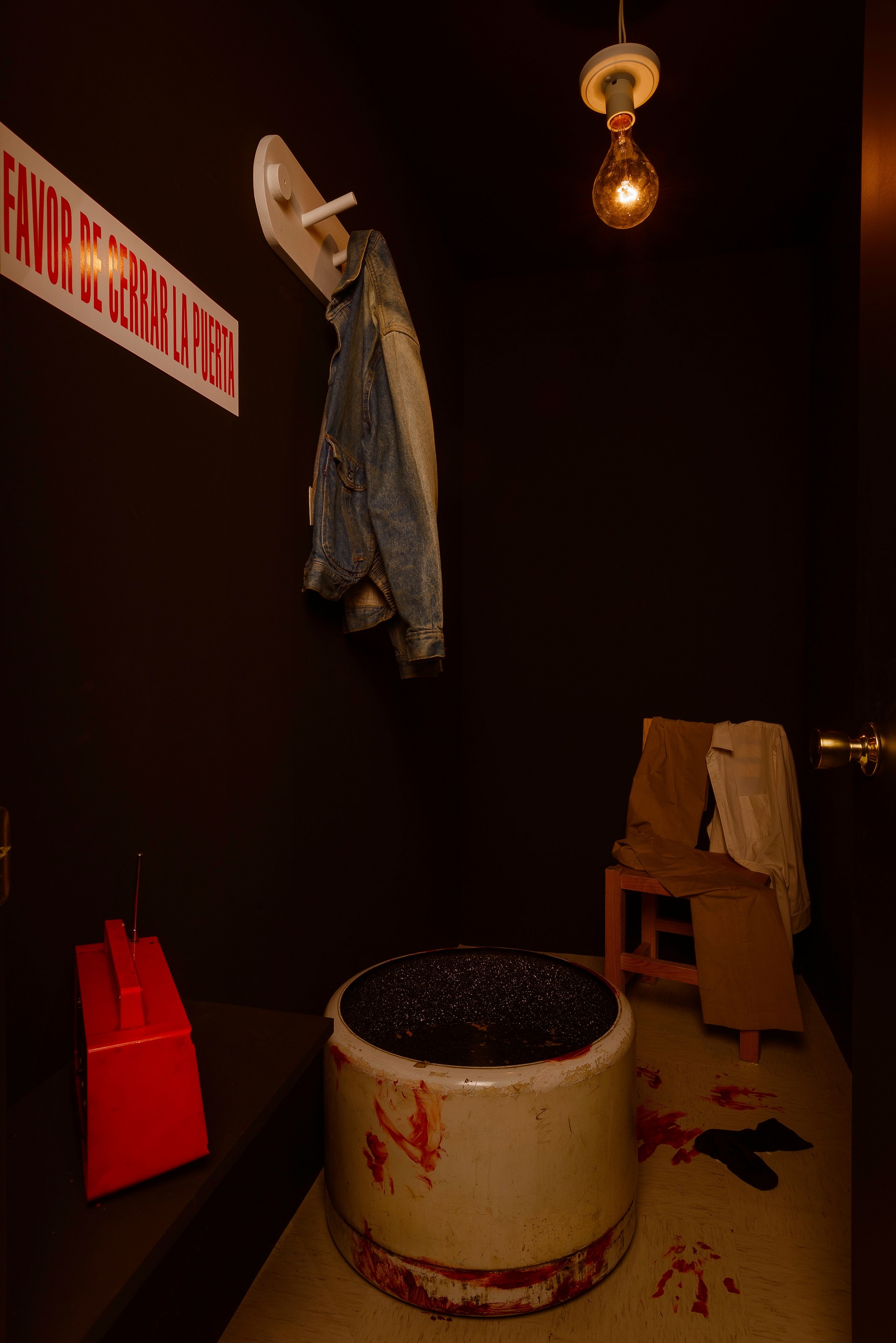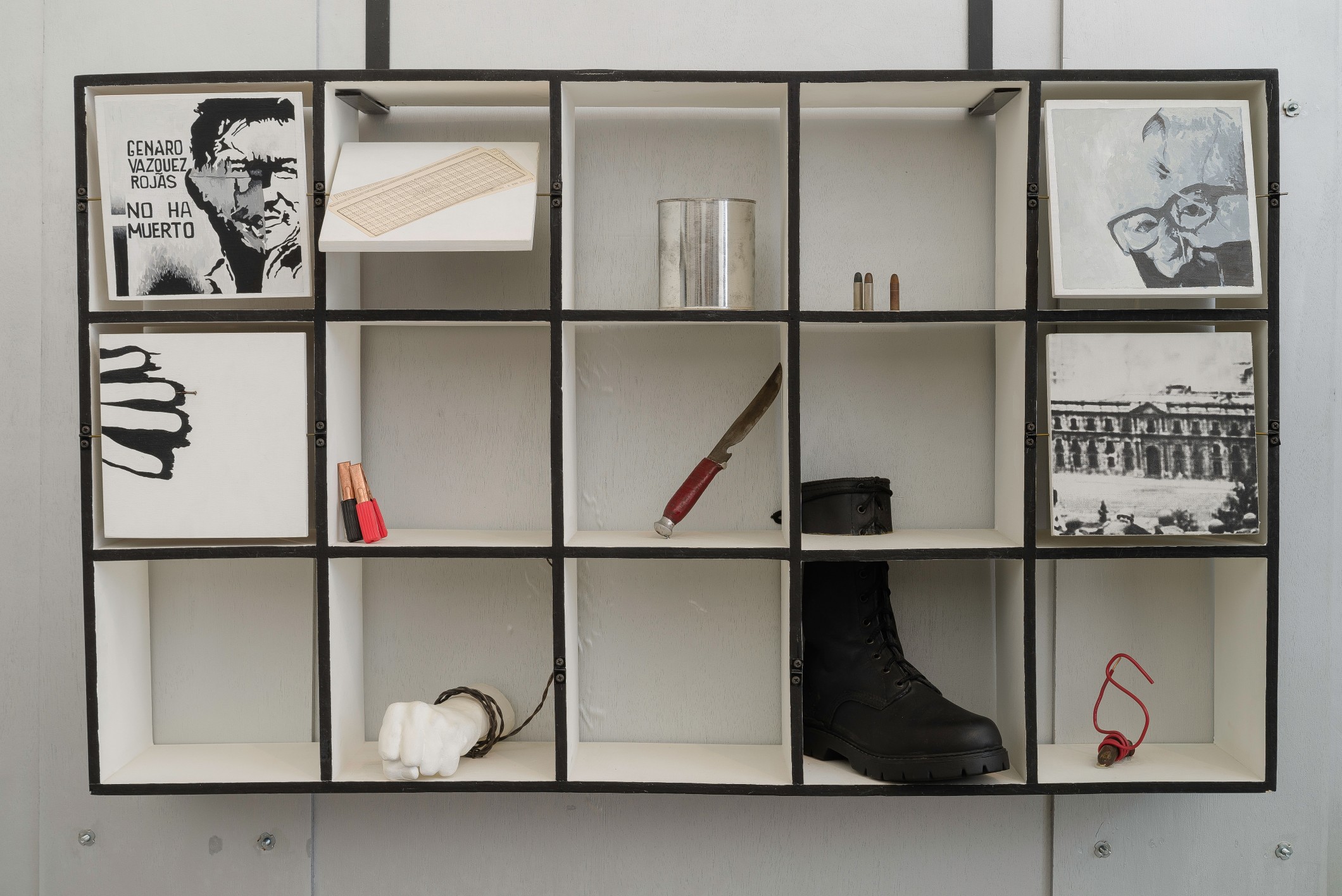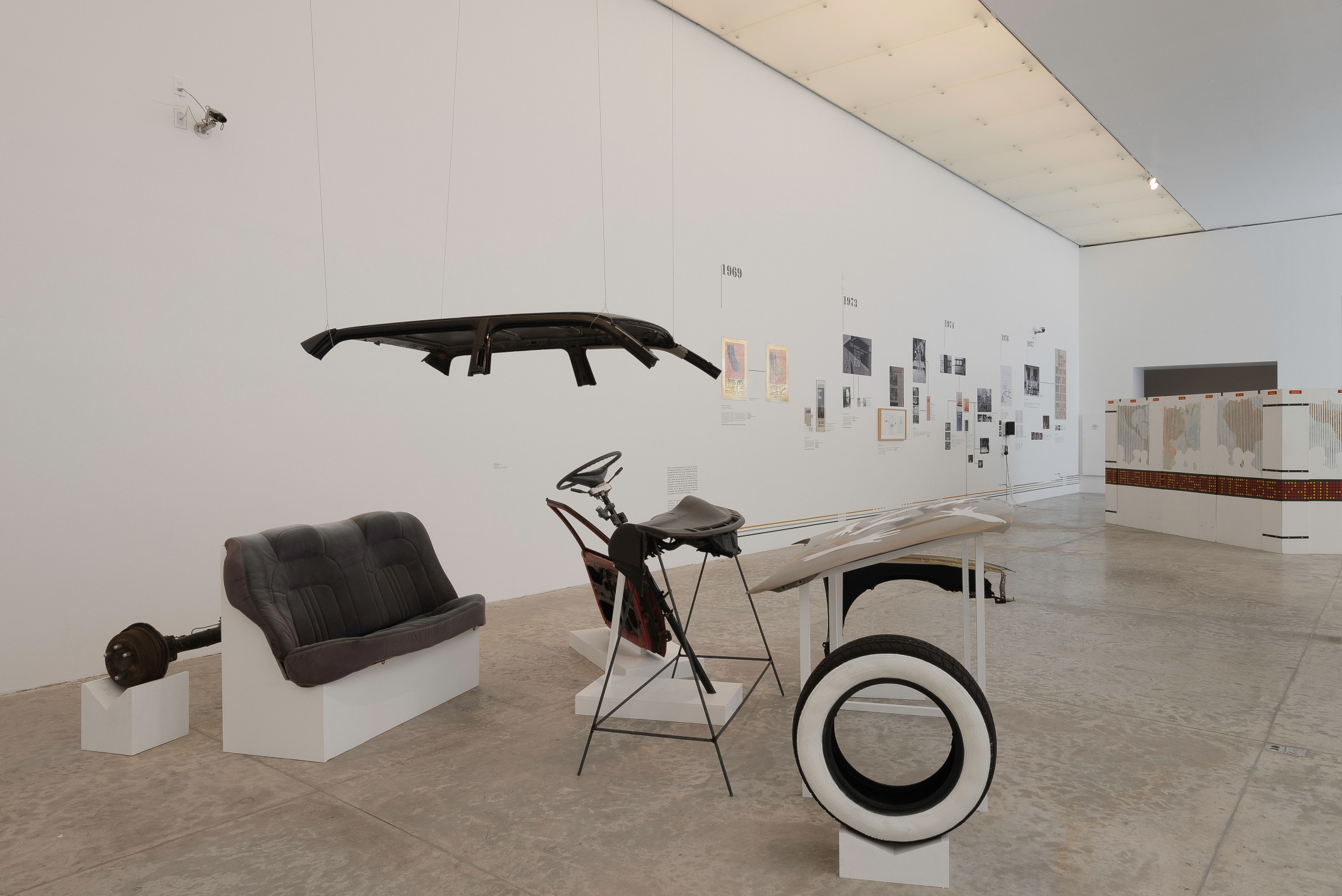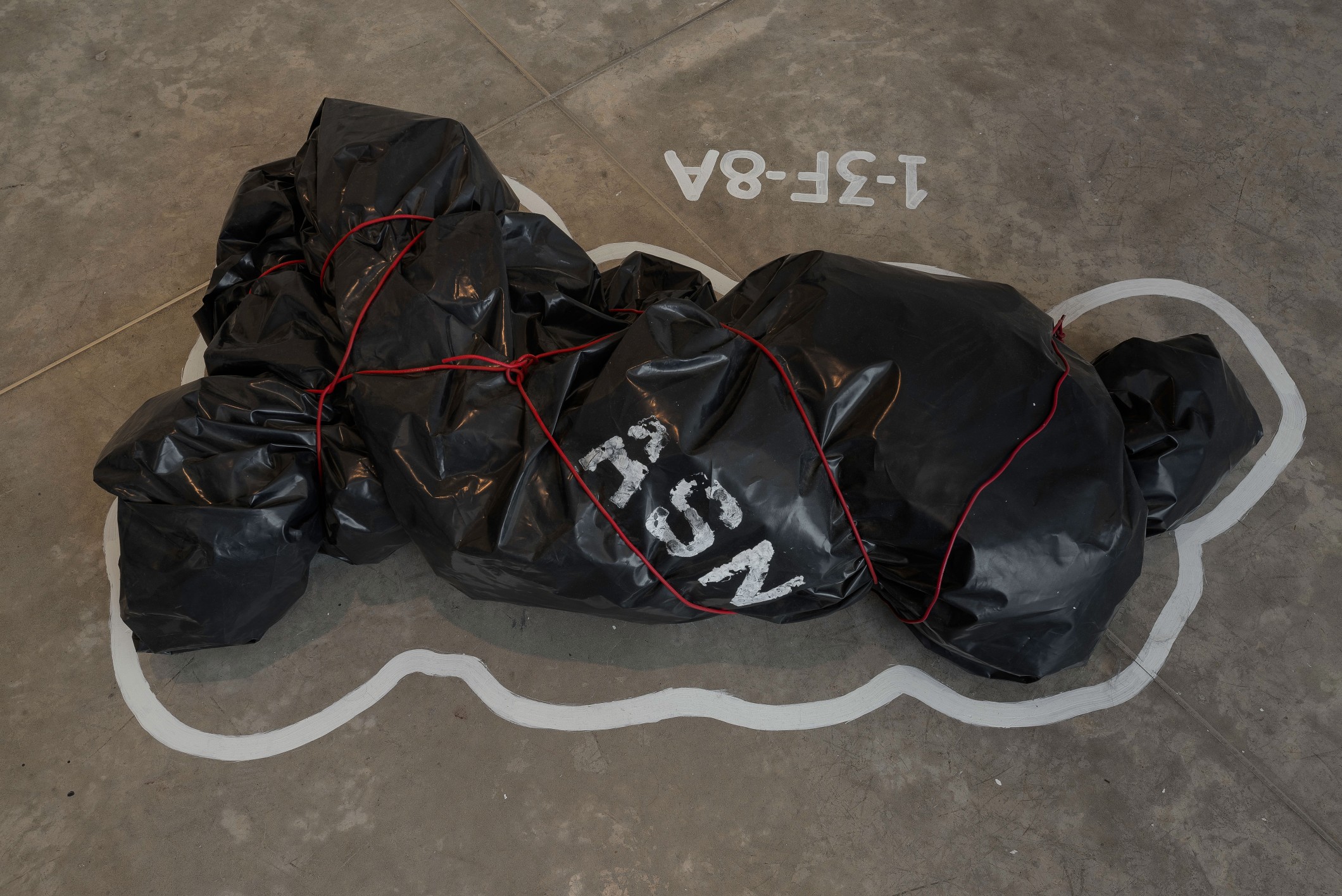Grupo Proceso Pentágono
The aim of the exhibition is to show for the first time the output of the Proceso Pentágono Group, a collective characterized by its critical and radical attitude towards state policies during the 1970s and early 1980s in Mexico.

Their work was defined by research and experimentation, and as part of the “Los Grupos” (The Groups) movement in Mexico, combined non-object art and action art. The work of Proceso Pentágono presented a critique of the cultural and artist system in the country, developing a strategy of resistance with works that address issues relating to the socio-political sphere, placing emphasis on repression in Latin America and Mexico.
The aesthetic discourse and subversive character of the group was manifested through visual experimentation, the use of different materials from the traditional pictorial medium, and an investigation of new forms of presentation and circulation of art. With the creation of ambiences, installations, and visual work, Proceso Pentágono resignified the artwork as a process of collective effort with a political purpose.
The Proceso Pentágono Group was a collective of Mexican artists active in Mexico City between 1976 and 1985, followed by sporadic interventions up until 1997. It was a pioneer of The Groups movement, a phenomenon at the end of the 1970s that saw the emergence of a large number of art collectives with an emphasis on experimentation and social critique.

It initially comprised Felipe Ehrenberg, Carlos Fink, José Antonio Hernández Amezcua and Víctor Muñoz, following their invitation to participate in the 10th Paris Biennial in 1977. Subsequently Carlos Aguirre, Miguel Ehrenberg, Lourdes Grobet and Rowena Morales joined the group. The list of Mexican and international collaborators of the group is long, and reflects the creation of an extensive network of experimental artists who made contact during this decade, marked as it was by powerful repression and dictatorship, and for whom the fundamental task was to invent new forms of producing art.

The exhibition proposes a new reading of both the artistic output and the internal dynamics of the group at different points of its career, through the study and presentation of documents from the Proceso Pentágono archive that now belong to the collection of the Arkheia Documentation Center, and works from the MUAC collection in partnership with institutional and private collections. The fundamental task of the exhibition is to carry out a historical reading that demonstrates the fissures and discrepancies that characterize the work of Proceso Pentágono, one of the most significant and avant-garde artist collectives of recent decades.

Artists: Proceso Pentágono Group, collective founded by Carlos Finck (Mexico City, 1946), José Antonio Hernández Amezcua (Mexico City, 1947), Víctor Muñoz (Mexico City, 1948) and Felipe Ehrenberg (Mexico City, 1943). Later joined by Carlos Aguirre (Acapulco, 1948), Miguel Ehrenberg (Mexico City, 1952-2006), Lourdes Grobet (Mexico City, 1940) and Rowena Morales (Ciudad Obregón, 1948).
Curator: Pilar García
Publicación
Publication
Grupo Proceso Pentágono
Authors : Pilar García and Julio García Murillo
Language : Spanish & English
Editor: MUAC-UNAM
Price: $140



